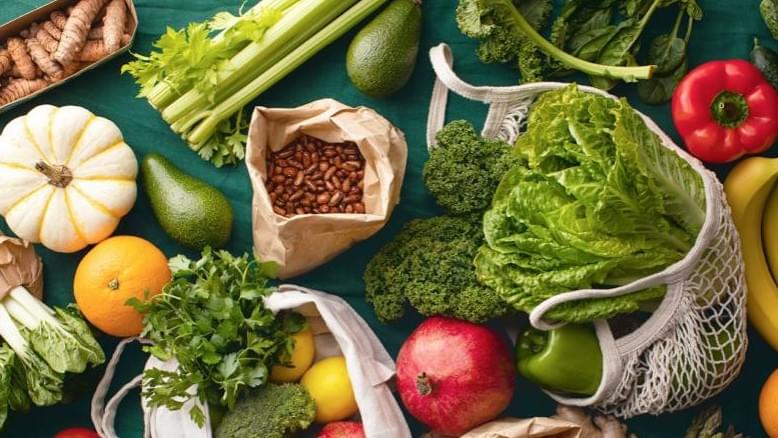Which foods help to fight infection?

While combating an infection, your body needs all the aid it can get. Of course, rest and hydration both play vital roles in recovery and good health. But food gives the minerals and energy to help overcome illness and get you back on your feet. Which food categories are, therefore, best while you’re trying to recover from an infection?
How do foods combat illness?
You’ve probably heard the phrase ‘you are what you eat’ and often associate it with weight loss and general health. However, eating is important when you’re ill to make sure you have the nutrients, energy, and a strong immune system.
Even though it could be appealing to stay in bed and eat comfort food, making poor dietary decisions might delay healing and exacerbate some symptoms.
A balanced diet gives you essential vitamins, minerals, and nutrients. All of which contribute to maintaining and strengthening your body and its functions. Good nutrition will enhance both your short-term and long-term health, from bone density and organ health to infection prevention.
Veggies and fruits
When evaluating which foods are best to combat illness, fruit, and veg have the most influence as they contain many vitamins and minerals to boost your immune system. Variety is deemed advantageous by nutritionists because various fruits and vegetables have different ratios of
Vitamin C is crucial because it enhances your body’s capacity to combat harmful microbes while bolstering your defense against invasive microbes. Citrus fruits, strawberries, tomatoes, broccoli, brussels sprouts, spinach, and bell peppers are all good sources of vitamin C.
Vitamin A is also useful for strengthening immunity and can even protect against certain types of cancer. Beta carotene is the primary source of vitamin A in your diet, for which carrots are a great source. However, any orange, yellow, or red vegetable is ideal for increasing vitamin A levels. This is because different fruits and vegetables have different ratios of minerals,
Nutritional Therapist Lizzie Mara explains as follows:
Eating various vegetables and some fruit supplies important fibers (prebiotics) to the beneficial bacteria, helping them grow, flourish, and regulate immune activity. Fruit and veg also supply essential nutrients such as vitamins and minerals the immune system requires, such as vitamins A and C, and minerals such as magnesium and zinc.
Protein
Protein helps your body develop, heal, oxygenate, digest meals, and regulate hormones. It’s safe to say that it performs a crucial function. Obtaining enough protein is a cornerstone of a balanced diet, especially when combating illnesses.
By interfering with the production of T cells and antibodies, a lack of dietary protein can affect your immune system and weaken your resistance to disease.
Inadequate protein decreases your energy levels and your body’s ability to repair itself. Both are crucial for overcoming the symptoms of an infection
Numerous excellent protein sources include fish, poultry, lean meats, beans & lentils, eggs, and some dairy items. A balanced and healthy diet is also possible with various protein-rich foods, regardless of dietary preferences and limitations.
Spices and herbs
Thanks to their anti-inflammatory and anti-bacterial compounds, herbs and spices help boost immunity and fight infections. The herbs and spices ginger and turmeric are favorites because they are antibacterial and excellent antioxidants. Both are easy enough to introduce
Also, fresh leaves such as coriander, mint, and basil are rich in antioxidants and can be calming. Include them in your daily diet to hot drinks, soups, sauces, salads, and much more. This will help prevent infection and hasten the healing process.
Green tea is another excellent option because it contains high levels of polyphenols, known as an antioxidant, and benefits our immune system.
Probiotics
Probiotics are good bacteria – microorganisms – some are already inside your body, and others are in fermented foods such as yogurts. Your immune system is boosted and stimulated by probiotics, but their main benefit is controlling your gut health. Doing so ensures you digest meals properly and get as much support from its nutrients.
A healthy gut gets the most out of nutrients and maximizes health advantages. Bad gut health can induce inflammation and lowers your body’s ability to absorb nutrients. This implies that you’ll be consuming less of what your body requires and that your immune system will be active in combating inflammation.
Probiotics, according to Mara, are helpful bacteria that live in a normal digestive tract. Fermented foods like kimchi, sauerkraut, kefir, kombucha, and yogurt are good sources of probiotics.
Seeds and nuts
Eating more nuts and seeds is a fast and simple way to improve your diet. They may be little, but they offer many benefits and are simple to include in your diet. Whether you munch on a few or add them to your favorite foods – your immune system will benefit. Nuts and seeds are rich in minerals and fatty acids, nutrient-dense, and contain vitamin E – crucial for cell repair after infection.
The bottom line
A nutritious diet is crucial for helping your body perform as it should and fighting off infections. The food groups mentioned in this article can easily be included in your daily diet and benefit your health.